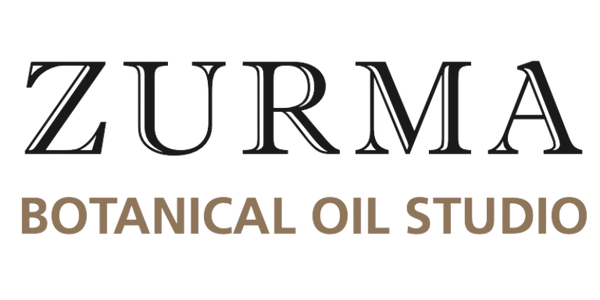
Why a Qualified Aromatherapist Matters
Share
Kia ora everyone,
When someone asks “Which essential oil should I use for stress, pain, sleep, headache or a medical condition?”, it can be tempting to share our favourite recipes. And while we’re always keen to help, there’s real value in chatting with a qualified aromatherapist before diving in. Here’s why booking a chat with an expert can take your aromatherapy journey from experimentation to safe, tailored wellbeing.
Understanding Aromatherapy and Its Benefits
Aromatherapy isn’t just about pretty scents. It’s the art and science of using plant-derived essential oils to support hauora (health and wellbeing). When used properly, these powerful extracts can assist with relaxation, mood balance, respiratory support, skin health, and so much more.
However, essential oils are highly concentrated—what works brilliantly for one person could cause sensitivity or interact with medications in another. That’s where professional guidance comes in.
The Limits of Google-Dip Advice
Online forums and social media are choc-a-block with suggestions like “Lavender for anxiety” or “Peppermint to wake you up”. While they’re not wrong, those snippets can overlook:
-
Dosage & Dilution: What % is safe for daily use?
-
Carrier oils: Which base oil maximises absorption and suits your skin?
-
Interactions: Could rosemary oil affect blood pressure medication?
-
Contraindications: Are you pregnant, breastfeeding or living with epilepsy?
A quick internet search can’t replace a full picture of your health story—so rather than winging it, it’s usually better to get personalised advice from an aromatherapist.
Why a Qualified Aromatherapist Matters
-
Holistic Assessment
A trained aromatherapist takes a holistic approach: they look at your lifestyle, medical history, emotional state and environment. They’ll ask about any current health concerns, medications, allergies and past experiences with essential oils. -
Safety First
You’ll learn safe dilution rates (usually between 0.5 – 5% depending on age and sensitivity), how to avoid skin irritation, and which oils are a “no-go” during pregnancy or for certain conditions. -
Quality Assurance
Not all essential oils are created equal. A good aromatherapist can guide you towards oils that are GC-MS tested and come with a Certificate of Analysis (COA)—just like the ones we pride ourselves on at Zurma. -
Custom Blends
Instead of a “one-size-fits-all” recipe, you’ll walk away with a bespoke blend that honours your unique “biography” of health needs and aroma preferences.
What to Expect in a Consultation
When you book in with a qualified aromatherapist, you’ll typically go through:
-
Intake Questionnaire – capturing everything from your sleep patterns to any existing treatments.
-
Skin Patch Test – ensuring you don’t react to any chosen oils.
-
Blend Creation – crafting a roller, mist or balm tailored to your goals.
-
Usage Guidance – clear instructions on how and when to use your oils, plus storage tips to keep them fresh.
-
Follow-Up – checking in to tweak your oils if needed and to avoid over use.
Safety, Contraindications and Best Practice
Essential oils have potent bioactive compounds—eucalyptol in Eucalyptus globulus, for instance, can be too stimulating for little ones, and phenolic-rich oils like oregano or thyme need extra caution by everyone. A qualified aromatherapist will:
-
Calculate exact dilution for age, skin type and application area.
-
Identify which carrier oil (apricot kernel, fractionated coconut, jojoba) best suits you.
-
Advise on storage (dark glass, cool spot) to preserve chemistry.
-
Flag any contraindications (blood thinners, hypertension, epilepsy).
Embracing Te Ao Māori and Rongoā Insights
New Zealand has its own rich tradition of plant healing. An experienced practitioner might weave in insights about kawakawa, harakeke and mānuka—acknowledging the mauri (life force) of Aotearoa’s native rongoā (herbal medicine). This respect for indigenous knowledge adds depth and cultural integrity to your aromatherapy journey.
Beyond the Bottle: Lifestyle and Environment
Aromatherapy isn’t a stand-alone fix. Qualified aromatherapists often incorporate lifestyle coaching—sleep hygiene, breathing techniques, stress management—because healing with essential oils works best alongside positive daily habits (and other medications if necessary). They might even suggest how to set up a simple diffuser routine at home or how to safely integrate oils using massage.
Conclusion: Invest in Your Wellbeing
Sure, it’s tempting to grab a bottle of lavender oil and hope for the best. But if you’re serious about harnessing the true therapeutic potential of essential oils—safely, sustainably and holistically—talking to a qualified aromatherapist is the best step forward. You’ll gain clarity, confidence and a customised plan that honours your unique wellbeing journey.
No worries if you’re new to this—our team at Zurma is always happy to point you in the right direction for a professional consultation. Kia mahi tahi tātou (let’s work together) to make sure you get the full picture and all the benefits aromatherapy can offer.
Want to find a Qualified Aromatherapist in your area?
We recommend visiting: The NZ Register of Holistic Aromatherapists (NZROHA)
